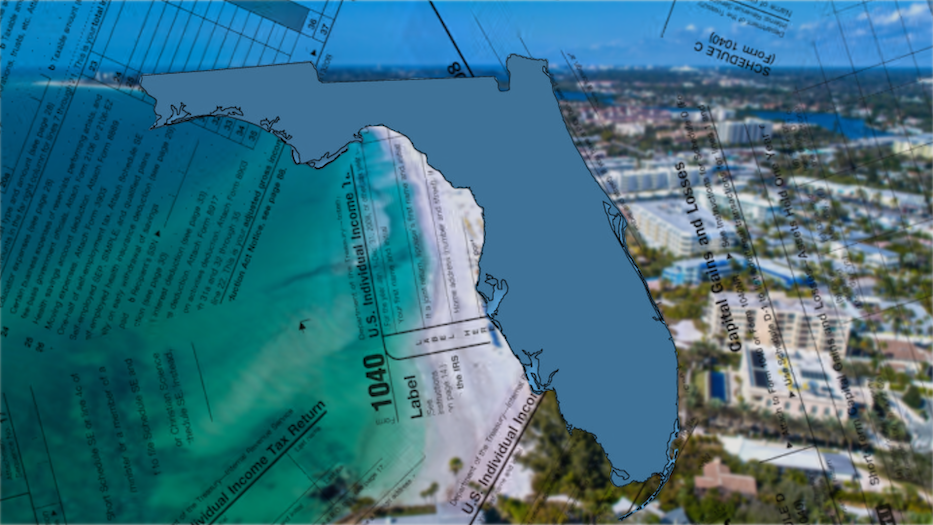By Max Sheikh
Florida legislators, led by Governor Ron DeSantis, are continuing a proposal to eliminate property taxes as homeownership costs continue to rise around the state.
Governor DeSantis is supportive of placing on the 2026 ballot a constitutional amendment to abolish property taxes, and 60% of voters would be needed to support it. In his recent announcement, DeSantis explained why he supports this: “You buy a home, pay off a mortgage, yet you’re never really done paying because the government always demands more.”
However, getting rid of property taxes would result in giving the state an enormous financial problem. Property taxes currently make for around $43 billion annually, funding public services such as schools, infrastructure, and emergency services. Tax experts warn that filling this gap would require big changes elsewhere, including potentially doubling the state’s sales tax from its current 6% to around 12%. Despite these estimates, Governor DeSantis is adamantly against increasing the sales tax, adding more complexity to the issue.
Governor DeSantis instead wants foreign tourism to compensate to compensate for the proposed elimination of state property taxes. “I want Canadian tourists and Brazilian tourists subsidizing the state and making it so Florida residents pay less taxes,” DeSantis said. “I don’t want to give Canadians a tax cut.”
“Property taxes are important for our infrastructure and public building financing. I don’t see another viable option.”
Mark Sheikh
Also, the Florida House of Representatives introduced tax relief worth $5 billion. Governor DeSantis has been arguing that this relief should be allocated to property taxes and not taken from the sales tax. Desantis said, “I’m proposing that the Legislature direct that to provide immediate relief for all Florida homestead owners, and if we do that, we would end up with about $1,000 in property tax cuts for every homesteaded Floridian.” Florida tax specialist Greg Fox criticized the bigger plan, adding, “No property taxes? Big problem. It makes public funding unstable and vulnerable to economic fluctuations.” Likewise, Florida investigative reporter Justin Schecker noted that while lawmakers call this plan “the largest tax cut in state history,” it creates public worry about the potential impact on public services.
Ponte Vedra residents share these conflicting views. Mark Sheikh, Ponte Vedra homeowner and resident, is intrigued by the idea but views it as unrealistic. Sheikh said, “Property taxes are important for our infrastructure and public building financing. I don’t see another viable option.”
Economists are also worried that shifting toward more use of sales taxes would disproportionately hurt lower-income individuals. Florida households earning under $61,500 pay 3.5% to 5.5% annually of their income in property taxes. Shifting toward more sales taxes, the equally regressive option, would put another burden on those not able to pay.
Politically, the plan carries subtle implications. Critics argue it can serve largely political purposes by simply appealing to voters who are eager for tax relief, whether or not long-term fiscal feasibility is assured. Politicians, including DeSantis, could gain politically by making deep tax cuts promises before elections, even as experts and residents worry about feasibility and sustainability.
However, recent polling shows that Florida voters are not eager to eliminate property taxes at the expense of increasing the state sales tax. In a survey conducted by the Florida Policy Institute, 68% of voters would prefer to maintain property taxes rather than double the state sales tax to 12%. This is party-independent, as 77% of Democrats, 61% of Republicans, and 69% of Independents oppose the tax swap.
Graphic By Ryder Navarra





